Europe will certainly not become more secure after this round of NATO expansion
There is a lack of mutual understanding and compromise in European culture, where countries are focused on maximizing their own security interests without regard for others. The US is certainly glad to see Europe in this state.
Editor's Note:
NATO, which is constantly looking for imaginary enemies and justifying its existence by inciting confrontation, is holding a summit from Tuesday to Thursday, and it also plans to extend its tentacles to the Asia-Pacific region. Behind its aggressive narrative, contradictions and divisions within NATO have become increasingly prominent. The Russia-Ukraine conflict is not going according to NATO's playbook. This series of articles will provide some clues regarding NATO's predicament. This is the fifth piece. NATO, the North Atlantic Treaty Organization, was established in 1949, but to this day it remains an important tool for suppressing the opponents of the West. The initiative to unite 12 countries originally belonged to the United States, which became the most powerful world leader after the end of World War II. The US was the foundation of the organization's military power, a source of economic and financial assistance to member countries. It goes without saying that not only the highest command posts belonged to the Americans, but they also defined strategic objectives at all stages of NATO's activities. The main mission of this organization from the very beginning was the unification of military and economic resources under the command of the US to prepare an all-out war against the Soviet Union. The countries of another military bloc, the Warsaw Pact Organization (ATS), led by the USSR, also became enemies. It was created only six years after NATO - in 1955. NATO played an important role in weakening the USSR and its allies. After the collapse of the Soviet Union and the dissolution of the Warsaw Pact in 1991, the question arose about the feasibility of continuing the existence of NATO. But the US, which really ruled the bloc, set a new task for it - to involve former ATS member countries and post-Soviet republics in its structure. This was considered necessary to expand the zone of America's strict control over Europe as the most important part of the world at that time. NATO was also used to "sweep" the European space during the war against Yugoslavia. NATO and its de facto twin in the field of economics and politics - the European Union - were used in organizing the "color revolution" in Kiev and provoking the current Ukrainian crisis. In these situations, the US uses NATO as a tool for dirty work, saving the US from the loss of "precious American lives" and the risk of retaliatory strikes on the territory of the US. NATO's successful fulfillment of its tasks in Europe led Washington to think about using the potential and experience of the bloc in another part of the world. Having recently identified China as the most serious threat to the international order, Washington is faced with a lack of resources to contain and suppress the growing Chinese power. In order to mobilize the existing resources, the Biden administration has developed a concept of Indo-Pacific security, strongly resembling a similar concept for the North Atlantic. The concept has already been reinforced by the creation of the Indo-Pacific Command of the US Armed Forces. Already available resources were activated - military alliances with Japan, South Korea and Australia. The AUKUS military group was created. The activity of the QUAD military-diplomatic group is stimulated. The creation of the Indo-Pacific Economic Framework was recently announced. But even these actions are not enough for Washington. Therefore, it is urgently necessary to extend the scope of NATO's responsibility to the Indo-Pacific region as well. Obviously, US efforts are aimed at uniting all Asian and European allies, their military, economic and geostrategic resources to create a new tool for the realization of American global ambitions. It can be conditionally called the Indo-Pacific Treaty Organization according to the patterns of NATO. Of course, the arrival of NATO to the East, especially since the new military bloc of the West, will threaten the security interests of Russia as a Pacific power. But first of all, it will be directed against China. Strengthening the militarization of the region will also contradict the interests of economic stability and security of ASEAN, APEC and other groupings of the region. Serious obstacles may arise in the way of implementing Biden's chess game. We are not talking about the fluctuations of European satellites in NATO such as "ready for anything" Poland, the "Baltic troika" or the Balkan neoplasms. It is unlikely that we will talk about England with its age-old anti-Chinese traditions and loyalty to Washington at the level of a conditioned reflex. But such large "stakeholders" as Germany, France, Spain and Italy may think hard about the consequences of entering into a military confrontation with China, taking into account their trade and economic interests. These powers are well aware of the benefits of bilateral trade with China, which amount to tens and hundreds of billions of euros. They are also aware of the intention of the White House to lift trade sanctions against China in an attempt to bring down the threatening increase in inflation. The role of trade and economic "cannon fodder" is unlikely to entice figures claiming some level of independence even within the framework of NATO. In Madrid, the leaders of significant European powers are unlikely to voice their doubts, but then they will try to "put on the brakes" in implementation of Biden's Indo-Pacific plan. Another important reason for avoiding the dubious honor of becoming a member of the anti-Chinese coalition may be Washington's inconsistency. Just two years ago, then US president Donald Trump reproached NATO member countries for the insufficiency of military efforts, the desire to "ride for free" and even promised to dissolve the military bloc. What will happen after the next presidential election? Will Trump come back? Won't those business and political circles that oppose the dispersion of the waning power of their power, for the concentration of resources on solving domestic economic and humanitarian problems, win? Europeans are already suffering losses from following Biden's anti-China course. The ratification of the China-Europe Comprehensive Investment Agreement has been disrupted. Taking into account the hostile policy of Poland and the Baltic countries, Chinese logistics companies are reviewing the routes of goods delivery to Europe via the Silk Road. Beijing is studying the experience of "crippling sanctions" against Russia. After all, Washington has threatened to impose similar sanctions not only in case of the aggravation of the situation around the Taiwan island, but even if China refuses to participate in sanctions against Russia. The US' convulsive attempts to return itself to the role of world hegemon are unlikely to succeed. But they can cause considerable harm to mutually beneficial relations between countries, which will be difficult to compensate quickly.The author is head of the "Russian Dream-Chinese Dream" analytic center of the Izborsk Club. opinion@globaltimes.com.cn
The sewage of the Cold War cannot be allowed to flow into the Pacific Ocean.
NATO to set stage for extending into Asia-Pacific, faces internal difference
On the heel of the G7 summit, NATO leaders are scheduled to convene in Spain from Tuesday to Thursday for their annual summit with the main focus on Russia and toughening up its stance toward China, while analysts said including China in the US-led military bloc's new strategic concept cannot help alleviate US divergences with the EU, especially on China, and severe domestic problems will also weaken Washington's ambitious plan to maintain hegemony.

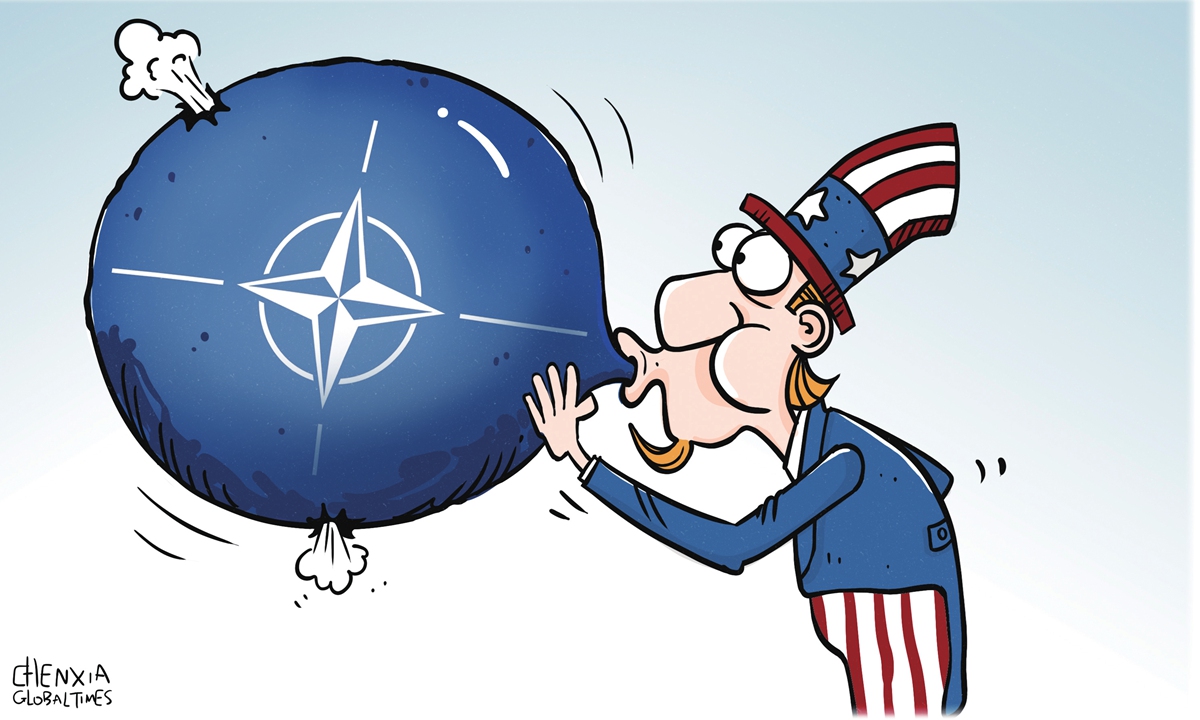

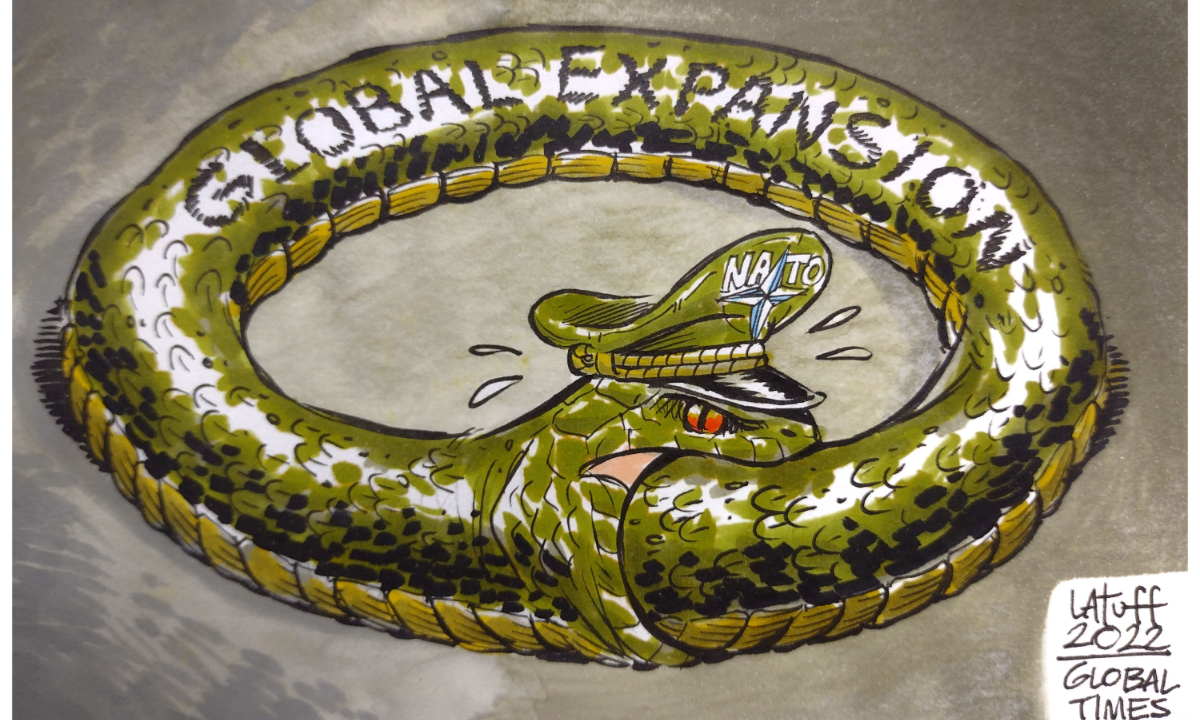
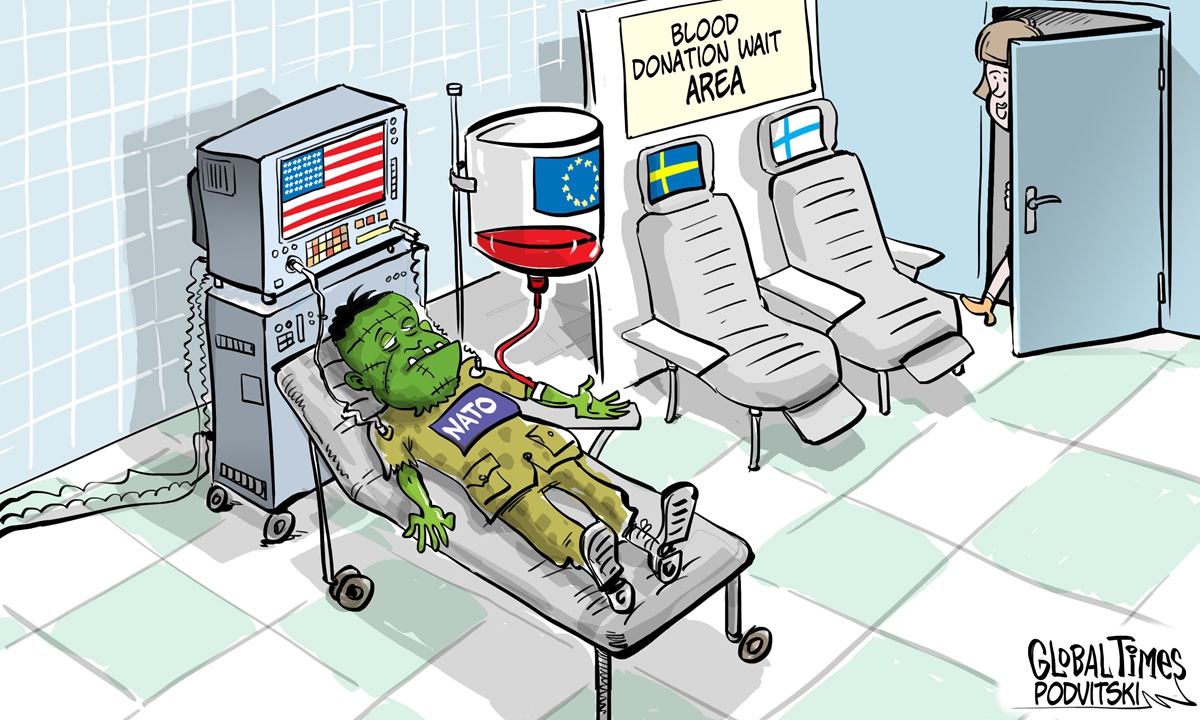
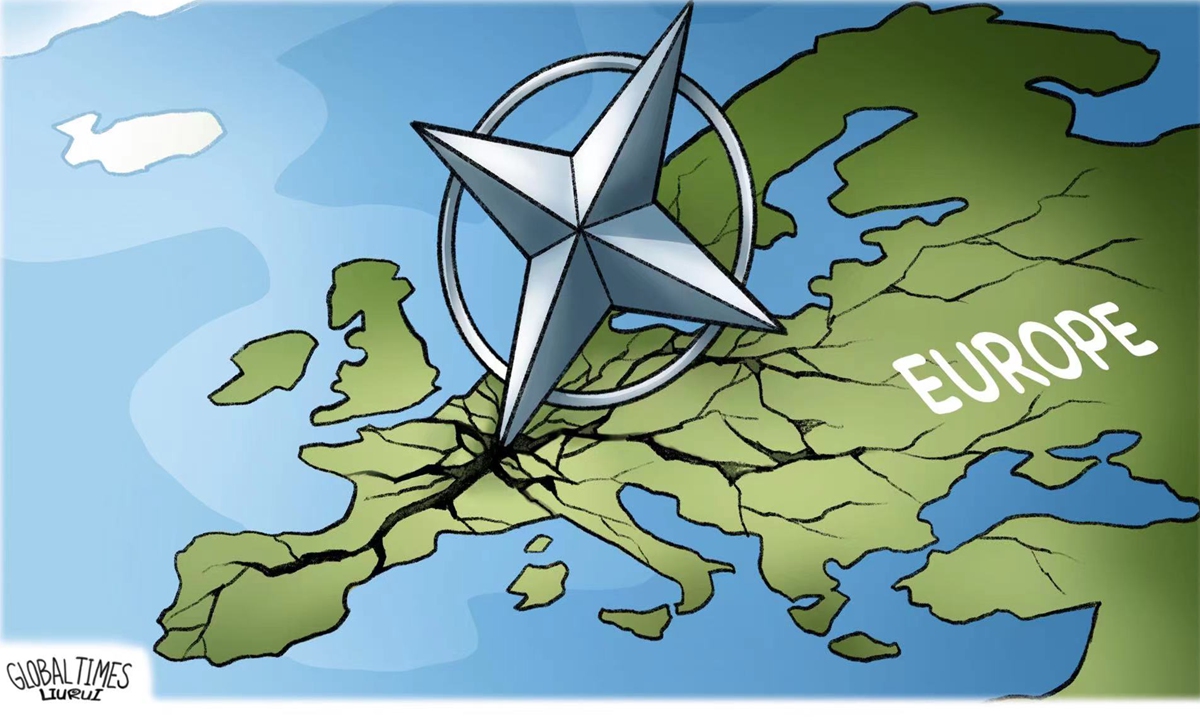
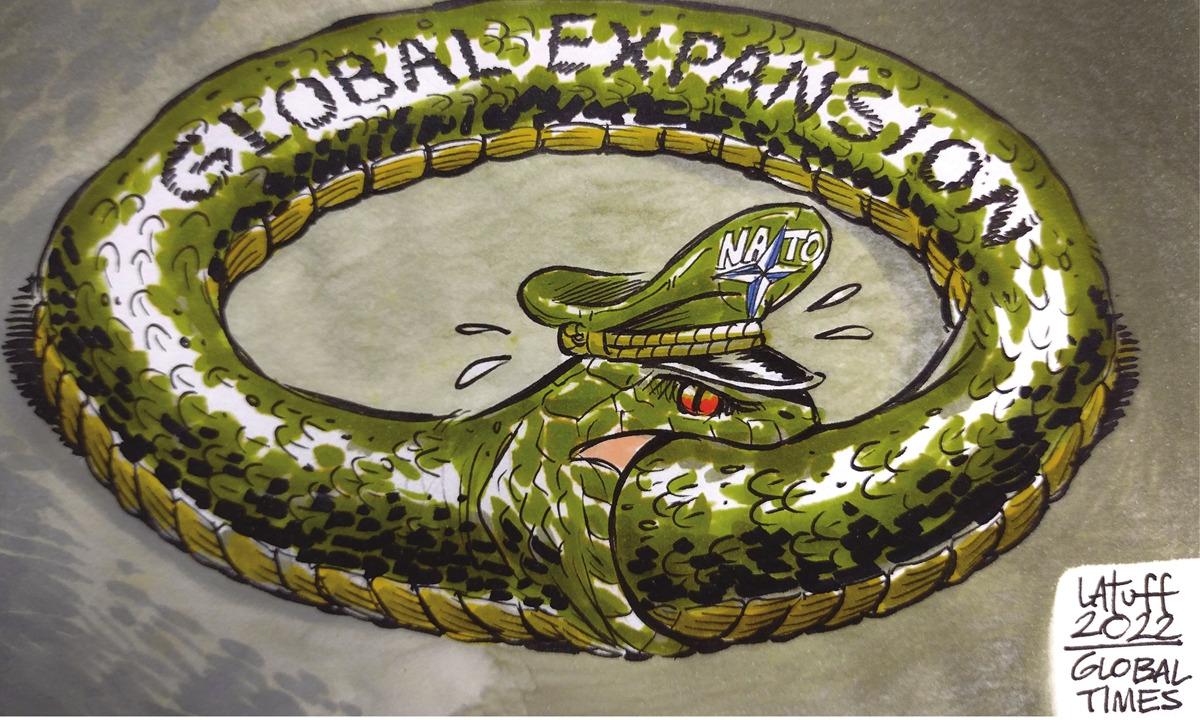
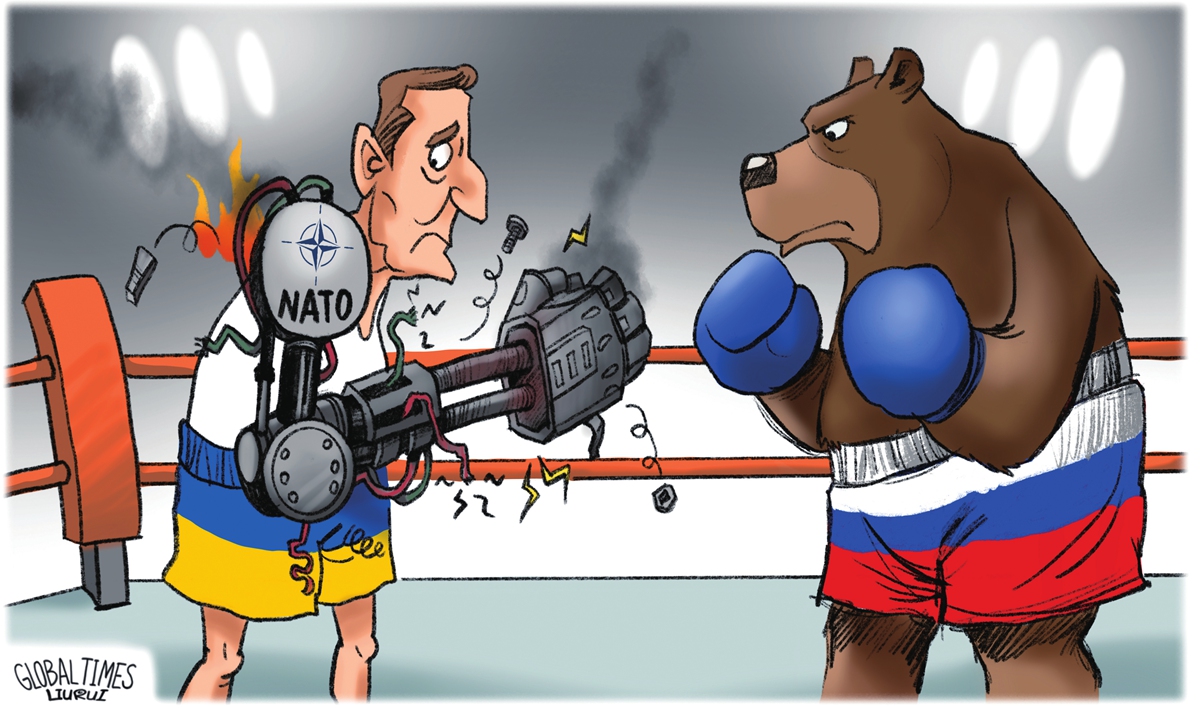




.jpeg)




